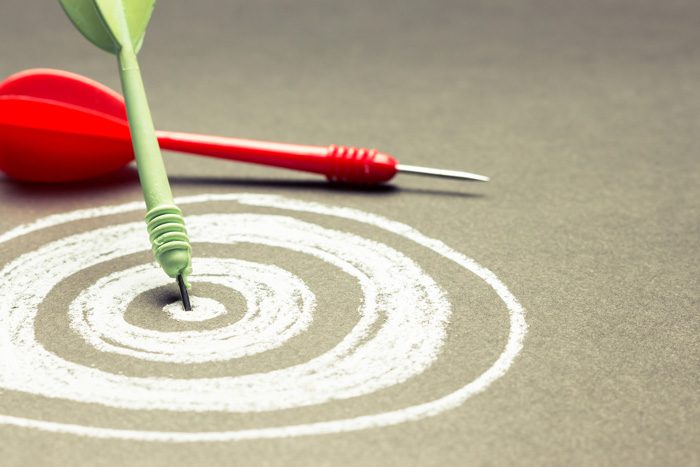 While willpower alone isn’t enough for a lasting recovery, there’s no doubt that commitment and motivation play a key role in helping you build a successful sober life for yourself. To stay on track, you’ll need to establish goals that are personalized to fit your unique needs.
While willpower alone isn’t enough for a lasting recovery, there’s no doubt that commitment and motivation play a key role in helping you build a successful sober life for yourself. To stay on track, you’ll need to establish goals that are personalized to fit your unique needs.
About Locke’s Goal-Setting Theory of Motivation
Edwin Locke, an American psychologist, created what is perhaps the most widely respected theory in industrial-organizational psychology. The goal-setting theory of motivation was first introduced in 1968 and emphasized the important relationship between goals and performance. Locke’s research indicates that people reach their peak performance when specific and challenging goals are linked to feedback on results. He believed that all behavior must be motivated and that motivation is directed by the goals a person is working to achieve.
Locke’s work is widely used by managers and human resources professionals to look at ways to increase employee job satisfaction and improve overall productivity. It urges that the following factors be considered when setting goals for the organization and/or individual employees:
- Clarity. The goal should be understandable in its expectations for success.
- Challenge. The goal should be challenging without being beyond an individual’s capabilities.
- Feedback. Feedback should be provided to assess progress.
- Commitment. The goal needs to be one that all stakeholders are committed to achieving.
- Task complexity. If a goal is very complex, it should be broken down into smaller sub-targets.
Applying the Goal-Setting Theory of Motivation to Your Recovery
Although Locke’s theory was created to explain behavior in work situations, many of the same concepts can apply to your recovery. In the early stages of your journey to lasting sobriety, recovery is essentially your full-time job. Treating it as such can help ensure a firm foundation for recovery success.
Tips to remember as you’re setting your goals include:
- Goals need to be specific. You want to avoid vague proclamations such as “I need to get in shape.” An example of a specific goal would be to sign up for an exercise class at your local gym and commit to attending three days per week or buying a fitness tracker and aiming for a step goal of 10,000 steps per day. Regular exercise boosts endorphins, increases energy, and helps with the sleep disturbances that are common in the early stages of recovery, but you need to clearly define what you want to accomplish in terms of personal fitness.
- Avoid setting too many goals. When you have a long list of goals, it’s easy to become overwhelmed or to ignore working on one goal in favor of another. It’s better to choose a small number of goals to focus on, then build on your success over time.
- Challenge yourself. Goals need to be things you can realistically accomplish, but they shouldn’t be overly easy. If you choose a goal that isn’t sufficiently challenging, this reduces your motivation to continue. If you’re not sure how to strike this delicate balance, seek advice from your sober support network.
- Seek feedback to assess your progress. Work with your treatment team to monitor your progress towards your recovery goals and identify areas in need of improvement. For example, if you’re struggling to manage your cravings, your treatment team might suggest that you try urge surfing or increase the number of 12-Step meetings you attend each week.
- Focus on learning instead of specific performance. It is perfectly normal to experience setbacks when trying something new. If you are unable to meet your original goal, your efforts are still considered a success if you learned something about your recovery needs along the way. Strive for progress, not perfection.
Similarity to the SMART Goal Framework
Locke’s theory of goal setting is said to have inspired the SMART goal framework first outlined by George T. Doran in the November 1981 issue of Management Review. Doran believed that effective goals follow the principles outlined in the acronym SMART.
- Specific. The goal involves a precise outcome that is desired.
- Measurable. The goal has a way of measuring your progress.
- Action-oriented. The goal explains what behaviors you must follow to achieve your objectives.
- Realistic. The goal is reasonably attainable given the current tools and resources at your disposal.
- Timely. The goal comes with a built-in timeframe that gives you a sense of completion, such as doing something every day or once a week.
The SMART goal framework is often used by people in recovery to help them set both short-term and long-term goals. The self-help group SMART Recovery offers a free SMART goals worksheet on their website.
We’re Here for You
Regardless of what recovery goals you have set for yourself, the team at Waypoint Recovery Center is committed to your success. Our South Carolina residential substance abuse treatment program focuses on building the skills needed for a lasting recovery, while our continuing care and alumni services provide support to ease the transition back to independent living. Whether you’ve just made the decision to seek addiction treatment or you need help with a specific recovery-related challenge, you can count on us to serve as a trusted resource in your quest for ongoing self-improvement.





